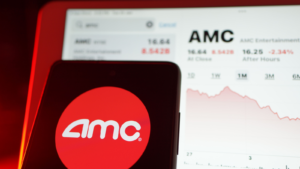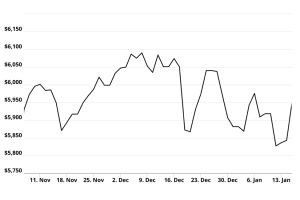
If you’re looking for good news about the popular meme stocks ranked in this article, you’ll be hugely disappointed.
Barron’s reported on May 21 that, according to Investor’s Business Daily analysis, investors lost $13 billion on meme stocks in the three trading days after GameStop (NYSE:GME) hit a $64.83 52-week high on May 14.
At the same time, GME hit a 52-week high, and AMC Entertainment (NYSE:AMC) hit a one-month high of $11.88. Trump Media & Technology Group (NASDAQ:DJT) didn’t seem to react as much, not even managing to hit a one-month high.
Since May 14, all three of the stocks have lost considerable gains, suggesting that meme-stock investors could be left holding the bag for a second time in a little more than four years.
I don’t think there’s any question that regular retail investors shouldn’t own any of these three popular meme stocks as long-term investments.
Here’s how I’d rank them from best to worst if you were forced to own one of them for the long haul.
AMC Entertainment (AMC)

While I think it’s a terrible long-term investment, I believe there is a floor to AMC’s share price solely because it is the largest movie theater operator in the U.S. and one of the largest internationally, with an average of 9,703 screens worldwide as of March 31.
Over the years, plenty of skeptics have predicted the end of moviegoing because new technology would allow theatergoers to experience the in-theater experience without leaving their homes.
Every time analysts or industry pundits make the “end is near” speech, investors ought to buy shares of AMC or, if possible, a company that actually makes a decent margin from its box office and concessions.
In Q1 2024, AMC reported revenues of $951.4 million, $3 million less than Q1 2023, with an adjusted EBITDA (earnings before interest, taxes, depreciation and amortization) loss of $31.6 million, 545% worse than a year ago.
AMC CEO Adam Aron said one thing that stood out in the company’s first-quarter press release.
“Despite a 6% decline in the first quarter 2024 North American box office compared to 2023, we grew our domestic market share, maintained total revenues in line with the prior year, and continued to grow our per patron profitability metrics at levels well above pre-pandemic measures,” AMC’s press release stated.
Although the company’s total debt remains a major concern, anytime you can increase your profit per patron, the sky shines down on your business.
Buy it below $3 and sell it at $6. Rinse and repeat.
GameStop (GME)

There are things that GameStop is and isn’t.
It is one of the world’s largest retailers of video games, with 2,915 stores in the U.S. as of Feb. 3 and 1,254 outside the U.S. in Canada (203), Australia & New Zealand (404), and Europe (647).
Like moviegoing, video games are a significant source of entertainment for people of all age groups, not just in the U.S. but worldwide. I don’t think that’s going to change.
The billion-dollar problem for current and former GameStop management was to keep the love of video games intact while transferring the buying experience from brick-and-mortar to online and digital. That hasn’t happened. Not even close.
In 2023, its software revenue was $1.52 billion, down from $1.82 billion in 2022 and $2.01 billion in 2021. At the same time, hardware and accessories revenue fell to $3.0 billion in 2023 from $3.17 billion in 2021. It also has a collectibles business that hasn’t been able to crack $1 billion in annual sales, reaching a high of $965 million in 2022.
The problem, as I see it, is that Ryan Cohen is trying to turn GameStop into an investment vehicle like Biglari Holdings (NYSE:BH), where the operational businesses aren’t necessarily the prime focus.
It could be fixed with fewer stores in the best locations, providing a top-notch retail and gaming experience. But that’s not what GameStop is providing. Not even close.
Trump Media & Technology Group (DJT)

Trump Media & Technology Group is the worst of the three meme stocks, but not because of anyone’s personal opinions about Donald Trump.
The reason for the stock’s demise is because the world did not need another social media platform, yet the powers that be went ahead and created Truth Social and then put Devin Nunes in charge as CEO of a business he doesn’t understand. At least Ryan Cohen co-founded, ran and then sold Chewy (NYSE:CHWY), the online pet retailer, to PetSmart for $3.35 billion in 2017.
As I said in April, Twitter, now X, was a much better buy when it went public in November 2013. At the time, it had more than 215 million MAUs (monthly active users) and revenue of $422 million over nine months. That compares to one million MAUs for Truth Social and $3.4 million in revenue over nine months.
It’s not even close, and that’s the point.
When Twitter went public, social media was still relatively new. Now it’s a pariah for kids and pretty much everyone else too. Truth Social is climbing a hill that’s not scalable. If it were, someone brighter and more talented than Devin Nunes would be the CEO of Truth Social.
It’s the worst of the three popular meme stocks.
On the date of publication, Will Ashworth did not have (either directly or indirectly) any positions in the securities mentioned in this article. The opinions expressed in this article are those of the writer, subject to the InvestorPlace.com Publishing Guidelines.




